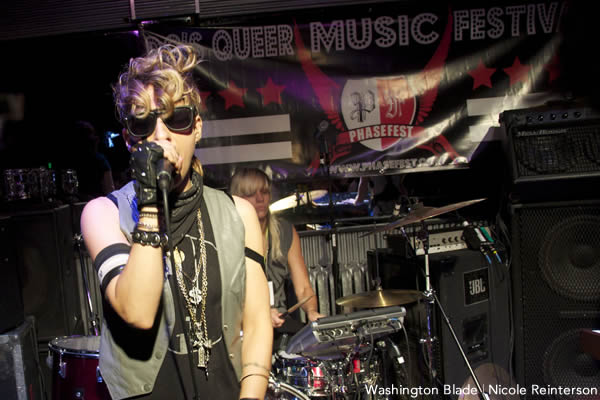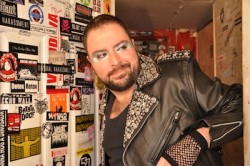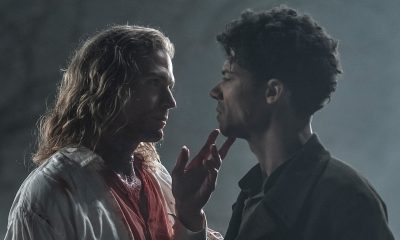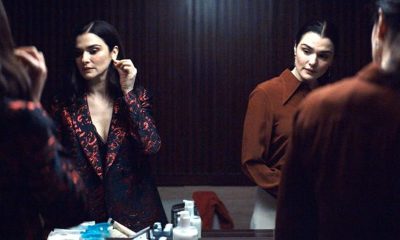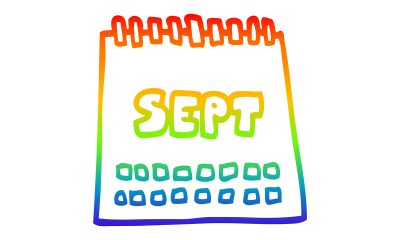Arts & Entertainment
Musical mayhem
Phasefest gives queer bands platform in D.C. this weekend
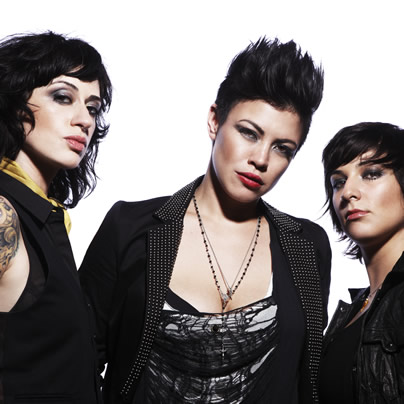
Phasefest
Continues through Saturday
Phase 1
525 8th Street, S.E.
$20 for tonight; $25 for Saturday
Weekend passes available for $55
Tickets available at the door
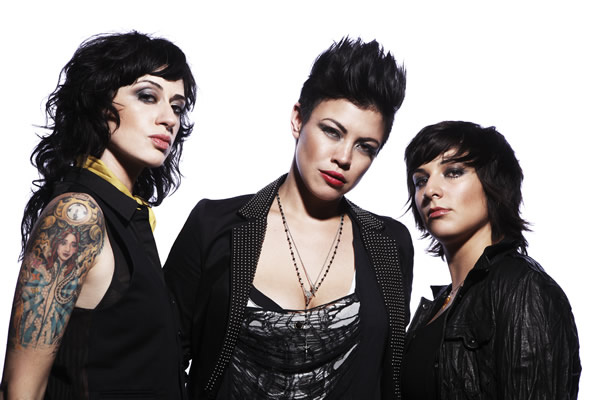
Hunter Valentine is, from left, Vero Sanchez (bass), Kiyomi McCloskey (vocals/guitar) and Laura Petracca (drums). (Photo by Leslie Van Stelten)
Ordinarily Somer Bingham likes to hang out at Phasefest whether she’s playing that night or not.
The musician behind Clinical Trials has played Phasefest the past four years and is up again for a mini-set tonight. During a phone chat this week from West Hollywood where she’s getting ready for a solo show, she says it’s probably best she’s not planning to be at Phasefest on Saturday night. There’s a little drama that’s gone down with her old group, Hunter Valentine, the headline band for Saturday.
“It’s probably best I won’t see them since I just got kicked out of the band,” Bingham says. “I was never technically a full member, but we played together almost six months. They kind of decided I just wasn’t the right fit. Kiyomi (McCloskey, lead singer of Hunter Valentine) and I just weren’t getting along as band mates and it kind of just exploded.”
Fans of the Showtime reality show “The Real L Word” know the story — the drama played out in July and August during the series’ tense third season, a segment of which was filmed at Phase 1 in March.
But the drama should be avoided at Phasefest where the focus will be on the music. For the record, though, Bingham is pragmatic about the way things went down.
“We definitely wrote some cool songs together and played some great shows,” she says. “I thought we had good chemistry, but it’s such a bummer because we were great friends before.”
McCloskey says they “parted ways amicably.”
“Playing with Somer was always meant to be a trial run,” she says. “She didn’t know whether she wanted to be in the band permanently and we didn’t know whether she was the right fourth member. She is an amazing musician but it turned out not the right fit for Hunter Valentine. We wish her the best.”
Bingham says she played on about half of the cuts on the new Hunter Valentine album, “Collide and Conquer,” slated to drop Oct. 23 on Megaforce Records.
McCloskey says her band will definitely include songs from that project in their hour-long set Saturday night.
“The album’s been streaming on our site for a couple weeks, we actually just took it down,” she says. “But the fans have gotten a chance to hear it and people are really pumped. It has a great range of everything from guitar rock to ballads to mid-tempo pop songs. We’re really proud of the wide range there and we think it shows the most growth we’ve had in the band so far.”
For Bingham, Hunter Valentine was never her only musical outlet. She’s been doing Clinical Trials for about eight years in between her time working as a sound engineer in New York, where she lives. She calls Trials a “PJ Harvey-meets-Nirvana-meets a little more production-with some MIA and weird samples thrown in.”
She says the high quality of Phasefest, now in its sixth year and one of the few queer-specific music festivals in the country, keeps her coming back.
“These bands don’t just happen to be queer,” she says. “It’s all really great music. … All genres are represented. You’ll find something there you like musically and it will also be really high caliber.”
Phase 1 manager Angela Lombardi, who launched the festival, expects about 700 people to visit the bar this weekend, a number they’ve roughly been holding steady at for the past few years. She says about 75 percent of the bands slated for this year are returning acts.
“I do get some shit about it. People sometimes say, ‘Why not try to create an entirely new festival every year?’ Lombardi says. “But these are all bands I really love and people I really care about. I’ve become friends with many of them and so for me, it’s really about supporting great queer artists.”
It’s not a hard-and-fast rule that all the bands have LGBT members, but Lombardi can only think of one band that played there once that didn’t have at least one queer member.
And she says as time has gone on, the original Phase 1 — widely thought to be the oldest continually operating lesbian bar in the U.S. — has retained its own identity from its sister location in Dupont Circle which opened in February at the old Apex/Badlands location on 22nd Street. They were never meant to be the same experience and though Lombardi helped open that location, the two Phase spots operate largely independently of each other. All the Phasefest events will continue to be at the original Phase in Eastern Market.
“We did talk about the possibility of having one night (of Phasefest) there, but at the end of the day, we felt like offering the same festival experience people have come to expect from us was the best way to go,” she says. “We kind of thought if we go bigger, it will change to the point that it’s not this thing we love and think is great. We love this space and the feeling here and so after all the discussion, we just decided to keep it real and kept it at the original Phase.”
But did the new Phase cut into the original Phase’s customer base?
“We’re making it happen,” Lombardi says. “Some people go back and forth, but we’re always doing crazy shit at the original Phase. As of right now, we’re making it work.”
Alongside bands with national exposure and following like Hunter Valentine are indie local bands like Glitterlust, which played only its fourth date at last year’s Phasefest. Lead singer Mikey Torres — Glitterlust is the only male-fronted band on the roster this year — says Phasefest was “our first real show.”
“I was actually just watching the YouTube video of our set from last year and it’s really amazing how much we’ve evolved in that time,” Torres says. “We’ve played a lot more shows since then and added a lot more interactive elements. Everything’s just a lot bigger and amped up. Our focus now is making everything larger than life.”
So why is it important for queer bands to have outlets such as Phasefest at which to play? Isn’t it best to infiltrate the mainstream as much as possible for queer visilibity?
“I live for music so being able to support music that I know has endured some sort of hardship just be existing and giving them a safe space to perform in a totally queer rock and roll environment, it’s really a great thing,” Lombardi says. “It’s also just totally rad to have one space where you can go and hear a lot of bands. Yeah, it’s fun to go hear the Scissor Sisters and these great shows, but more often than not, you’re just hearing one band. This also gives some of our local bands some chances to perform alongside the bigger bands who have more national followings.”
Torres agrees.
“Even if we were fully accepted in mainstream society, we’ll always need our own spaces,” he says. “It’s great to have acceptance, but sometimes I just need to be with my gay friends. There’s a dialogue that can happen there that doesn’t happen with straight people. You can unwind most around the people you’re totally comfortable with.”
Arts & Entertainment
2026 Most Eligible LGBTQ Singles nominations
We are looking for the most eligible LGBTQ singles in the Washington, D.C. region.

Are you or a friend looking to find a little love in 2026? We are looking for the most eligible LGBTQ singles in the Washington, D.C. region. Nominate you or your friends until January 23rd using the form below or by clicking HERE.
Our most eligible singles will be announced online in February. View our 2025 singles HERE.
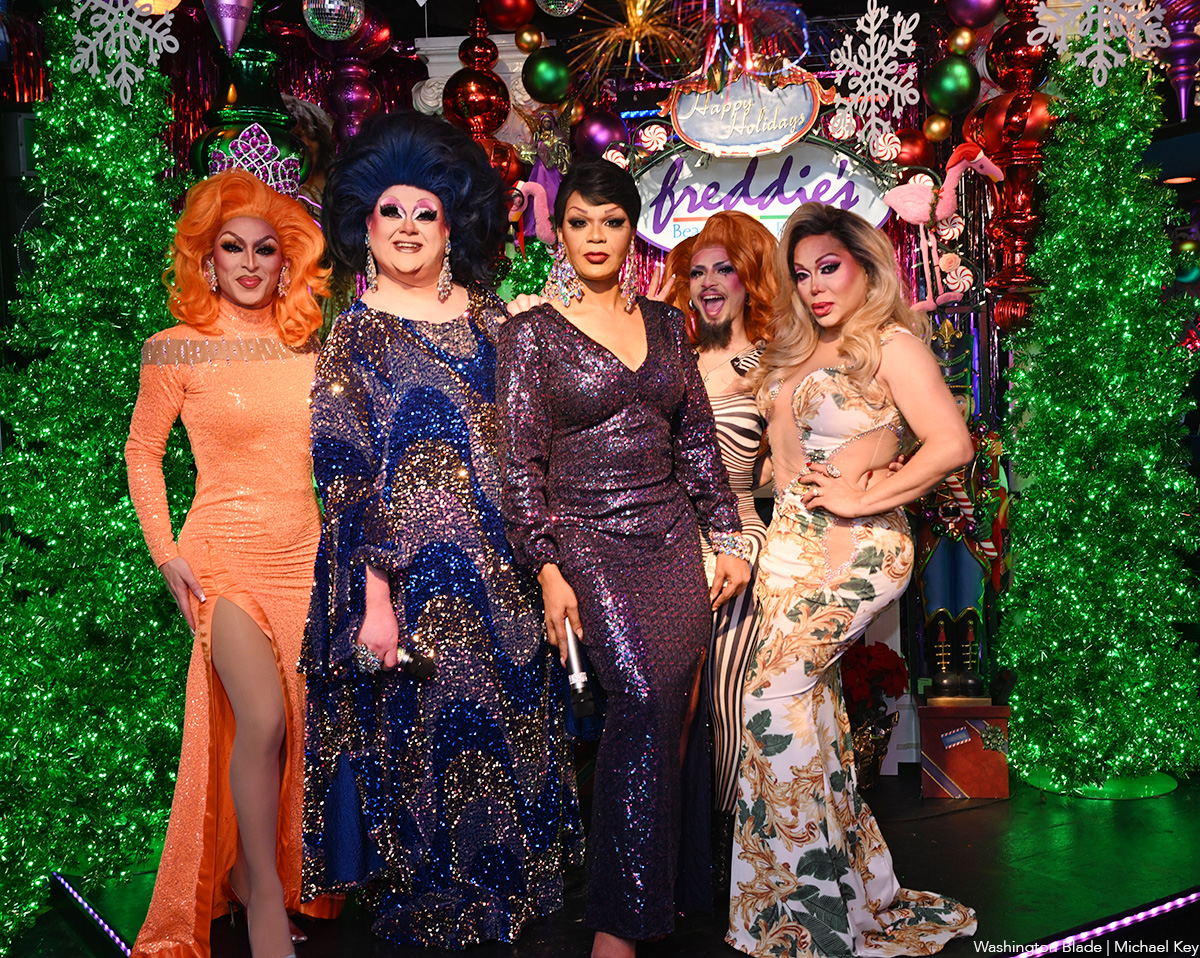
The Freddie’s Follies drag show was held at Freddie’s Beach Bar in Arlington, Va. on Saturday, Jan. 3. Performers included Monet Dupree, Michelle Livigne, Shirley Naytch, Gigi Paris Couture and Shenandoah.
(Washington Blade photos by Michael Key)

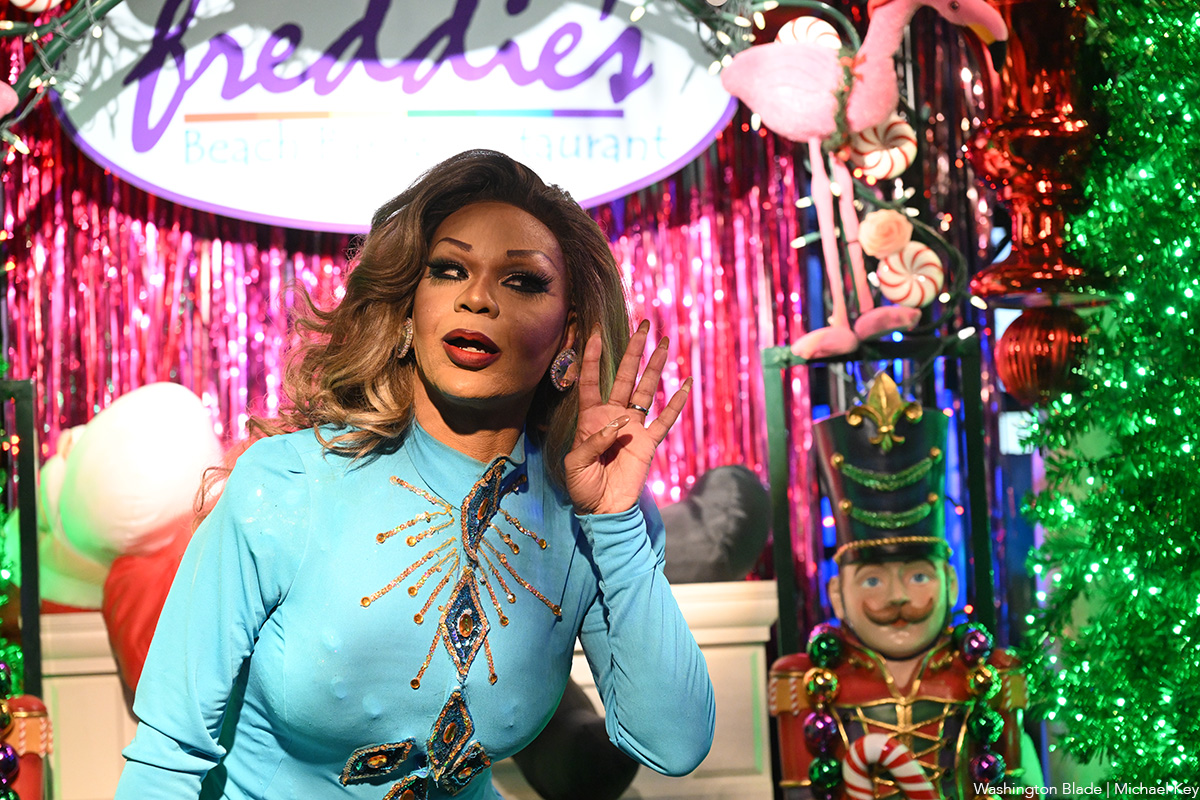





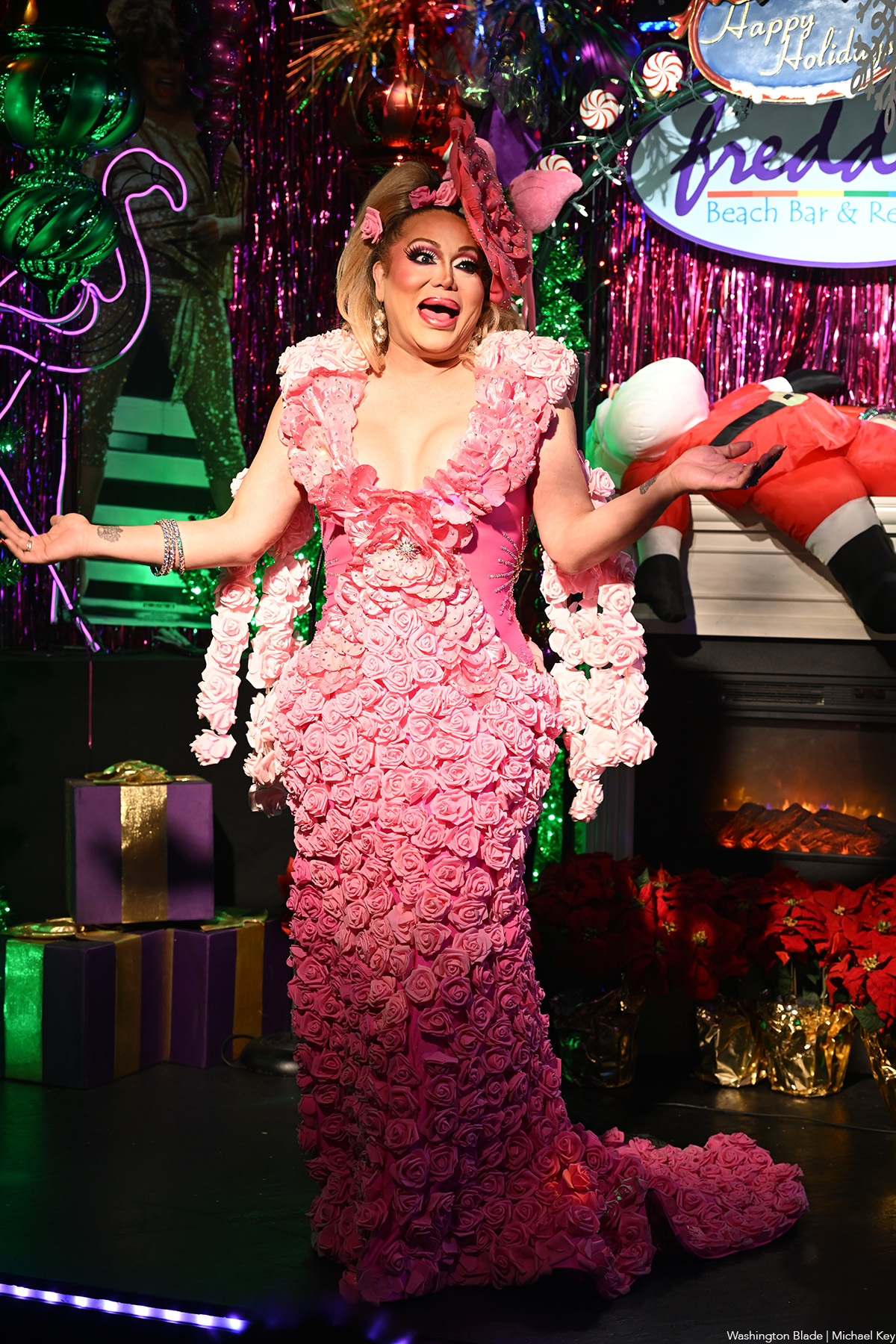
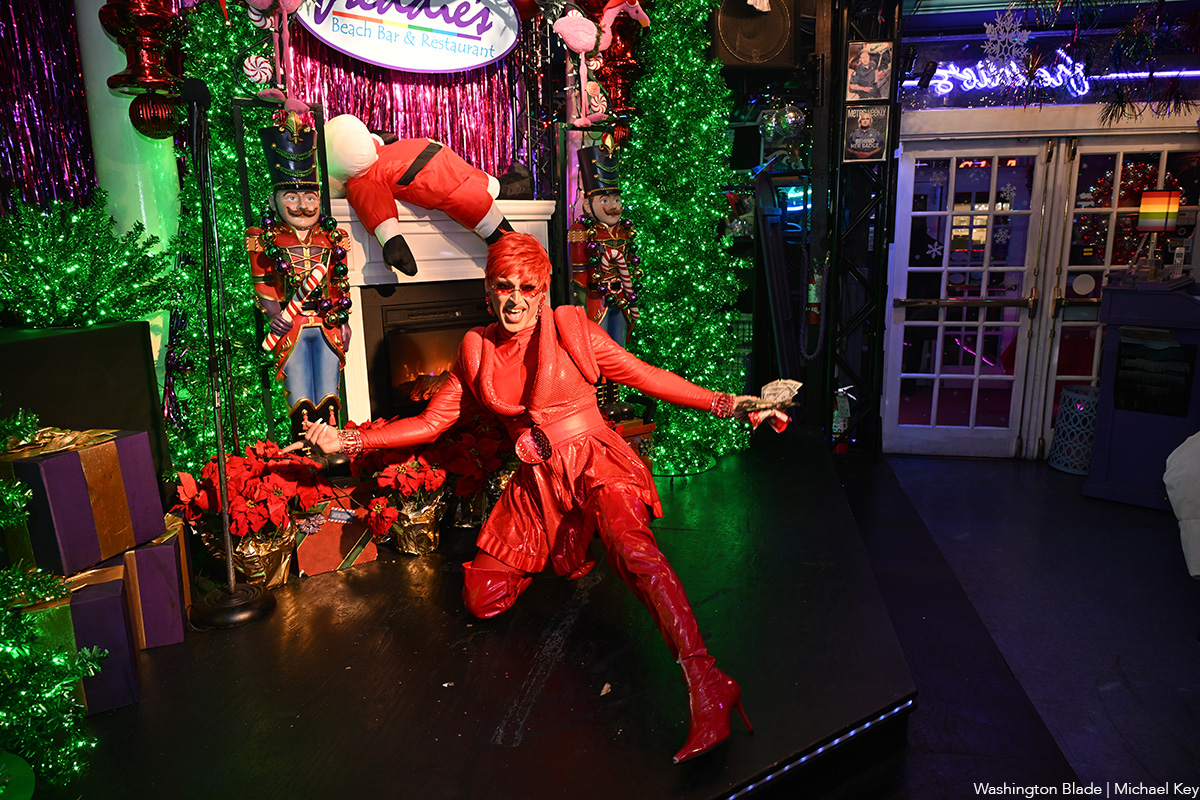
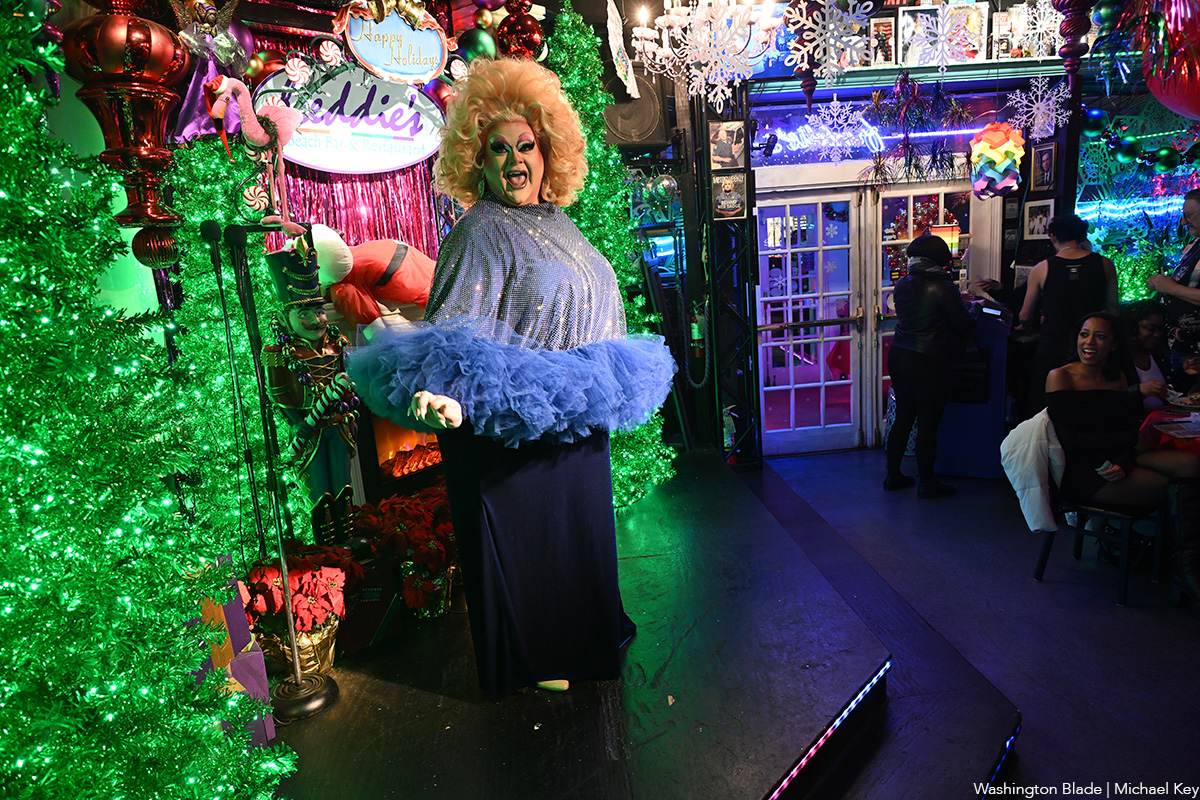
a&e features
Queer highlights of the 2026 Critics Choice Awards: Aunt Gladys, that ‘Heated Rivalry’ shoutout and more
Amy Madigan’s win in the supporting actress category puts her in serious contention to win the Oscar for ‘Weapons’
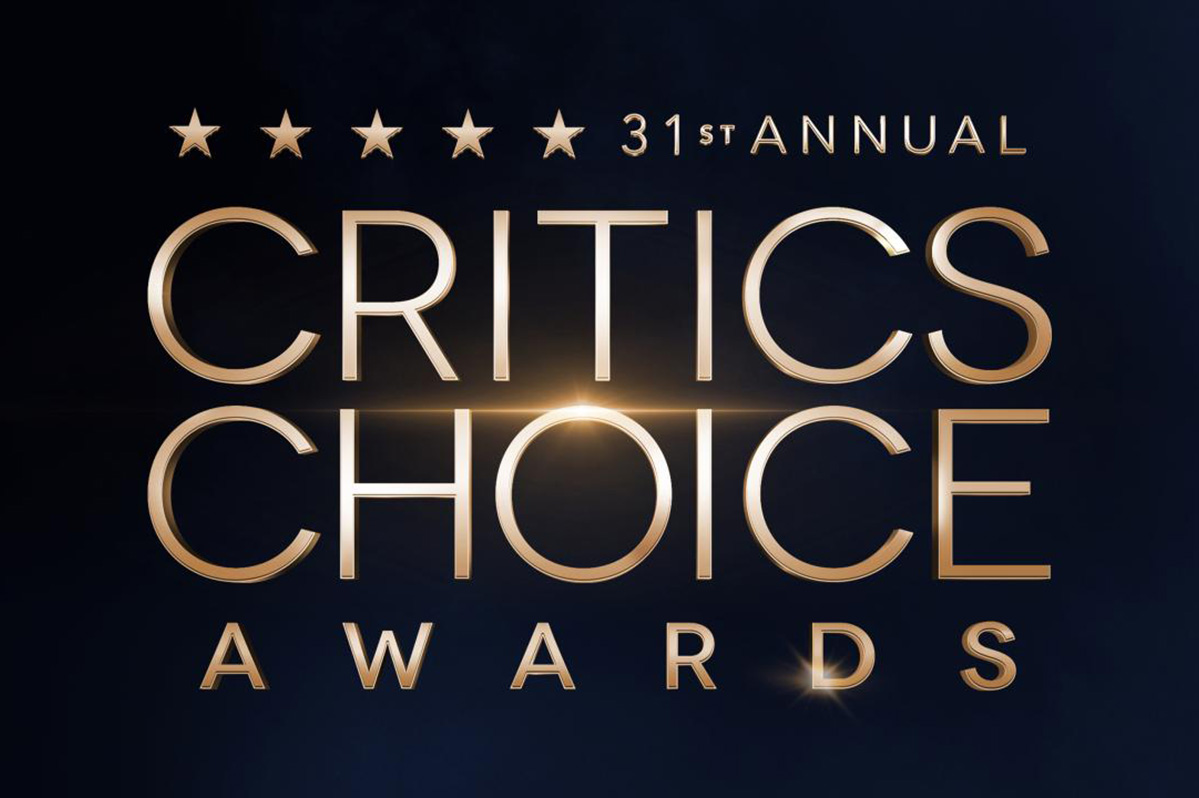
From Chelsea Handler shouting out Heated Rivalry in her opening monologue to Amy Madigan proving that horror performances can (and should) be taken seriously, the Critics Choice Awards provided plenty of iconic moments for queer movie fans to celebrate on the long road to Oscar night.
Handler kicked off the ceremony by recapping the biggest moments in pop culture last year, from Wicked: For Good to Sinners. She also made room to joke about the surprise hit TV sensation on everyone’s minds: “Shoutout to Heated Rivalry. Everyone loves it! Gay men love it, women love it, straight men who say they aren’t gay but work out at Equinox love it!”
The back-to-back wins for Jacob Elordi in Frankenstein and Amy Madigan in Weapons are notable, given the horror bias that awards voters typically have. Aunt Gladys instantly became a pop culture phenomenon within the LGBTQ+ community when Zach Cregger’s hit horror comedy released in August, but the thought that Madigan could be a serious awards contender for such a fun, out-there performance seemed improbable to most months ago. Now, considering the sheer amount of critics’ attention she’s received over the past month, there’s no denying she’s in the running for the Oscar.
“I really wasn’t expecting all of this because I thought people would like the movie, and I thought people would dig Gladys, but you love Gladys! I mean, it’s crazy,” Madigan said during her acceptance speech. “I get [sent] makeup tutorials and paintings. I even got one weird thing about how she’s a sex icon also, which I didn’t go too deep into that one.”
Over on the TV side, Rhea Seehorn won in the incredibly competitive best actress in a drama series category for her acclaimed performance as Carol in Pluribus, beating out the likes of Emmy winner Britt Lower for Severance, Carrie Coon for The White Lotus, and Bella Ramsey for The Last of Us. Pluribus, which was created by Breaking Bad’s showrunner Vince Gilligan, has been celebrated by audiences for its rich exploration of queer trauma and conversion therapy.
Jean Smart was Hack’s only win of the night, as Hannah Einbinder couldn’t repeat her Emmy victory in the supporting actress in a comedy series category against Janelle James, who nabbed a trophy for Abbott Elementary. Hacks lost the best comedy series award to The Studio, as it did at the Emmys in September. And in the limited series category, Erin Doherty repeated her Emmy success in supporting actress, joining in yet another Adolescence awards sweep.
As Oscar fans speculate on what these Critics Choice wins mean for future ceremonies, we have next week’s Golden Globes ceremony to look forward to on Jan. 11.

